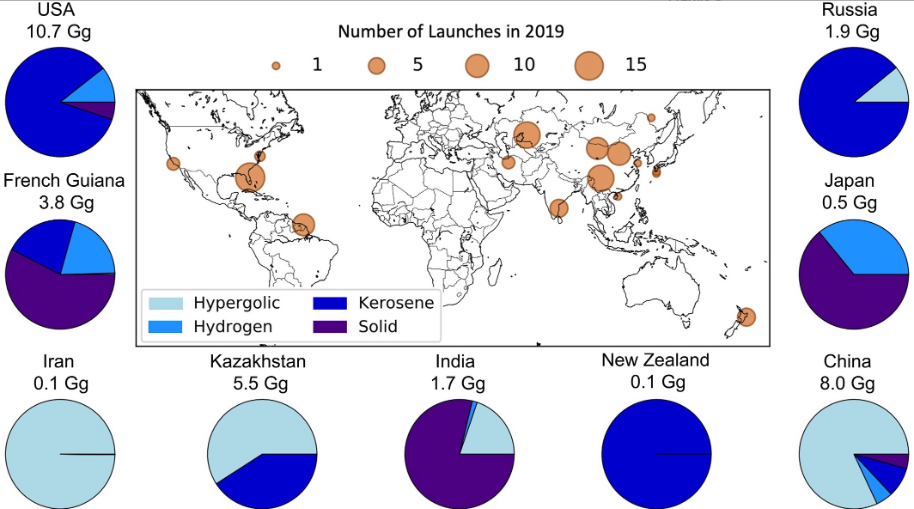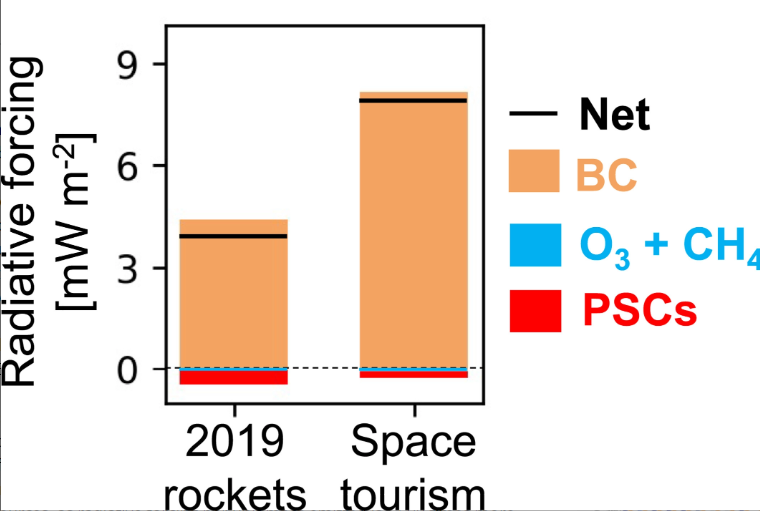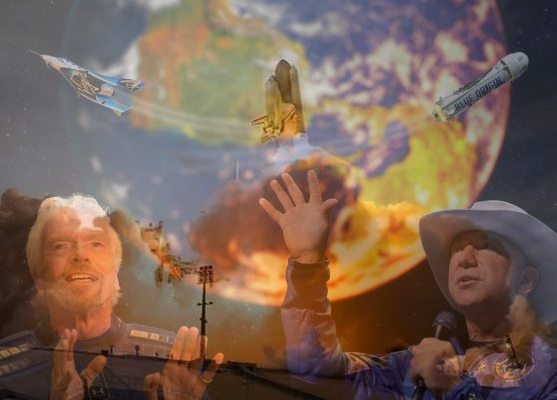Researchers from UCL, Cambridge, and MIT constructed a three-dimensional model to investigate the impact of rocket launches and re-entry in 2019, as well as the impact of expected space tourism scenarios based on the current billionaire space race.


The researchers discovered that black carbon (soot) particles generated by rockets are over 500 times more effective at holding heat than all other sources of soot combined (surface and aviation), resulting in an enhanced climatic effect as the soot particles are directly injected into the high atmosphere.
The researchers discovered that, in the case of daily or weekly space tourism rocket launches, the influence on the stratospheric ozone layer threatens to disrupt the recovery achieved following the Montreal Protocol’s successful implementation.

Furthermore, while the study found that the current loss of total ozone due to rockets is minimal, but the current growth patterns in space tourism suggest the possibility for future depletion of the Arctic’s upper stratospheric ozone layer in spring.
This is because pollutants from solid-fuel rockets and re-entry heating of returning spacecraft and debris are particularly harmful to stratospheric ozone.
To compute the results, the researchers gathered chemical information from all 103 rocket launches in 2019 from across the world, as well as data on reusable rocket and space debris re-entry.
They also used recent demonstrations by tourism entrepreneurs Virgin Galactic, Blue Origin, and SpaceX, as well as Virgin Galactic’s anticipated yearlong offering of at least daily launches, to build a scenario of a future powerful space tourism sector.
Reference – Journal Earth’s Future, Clean Technica, Futurism, Science Direct, UCL Media Outreach PR Newswire






